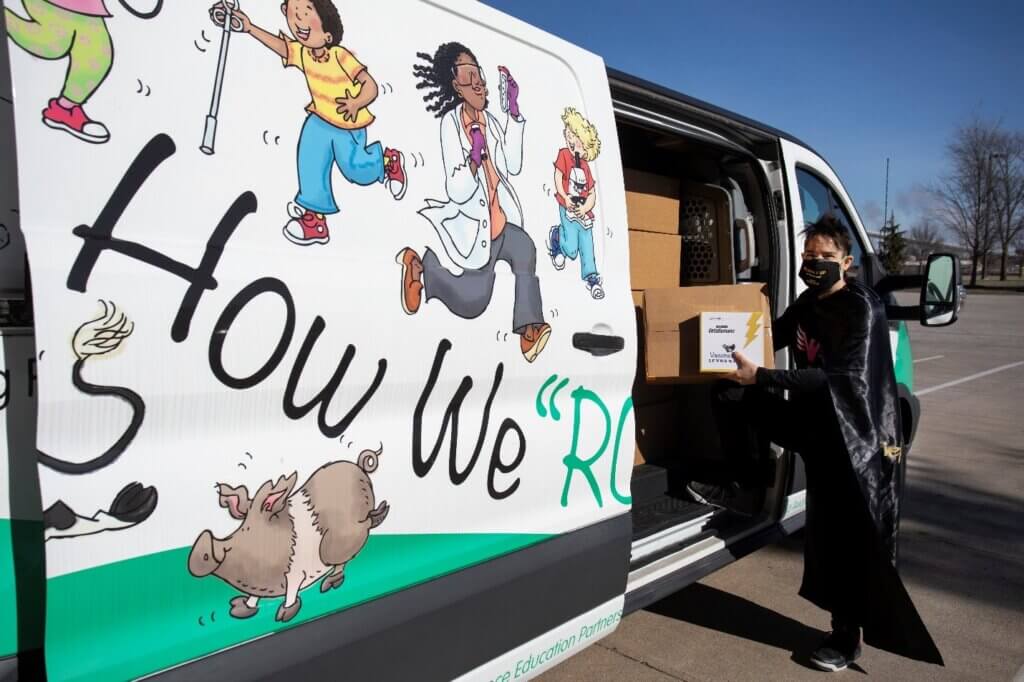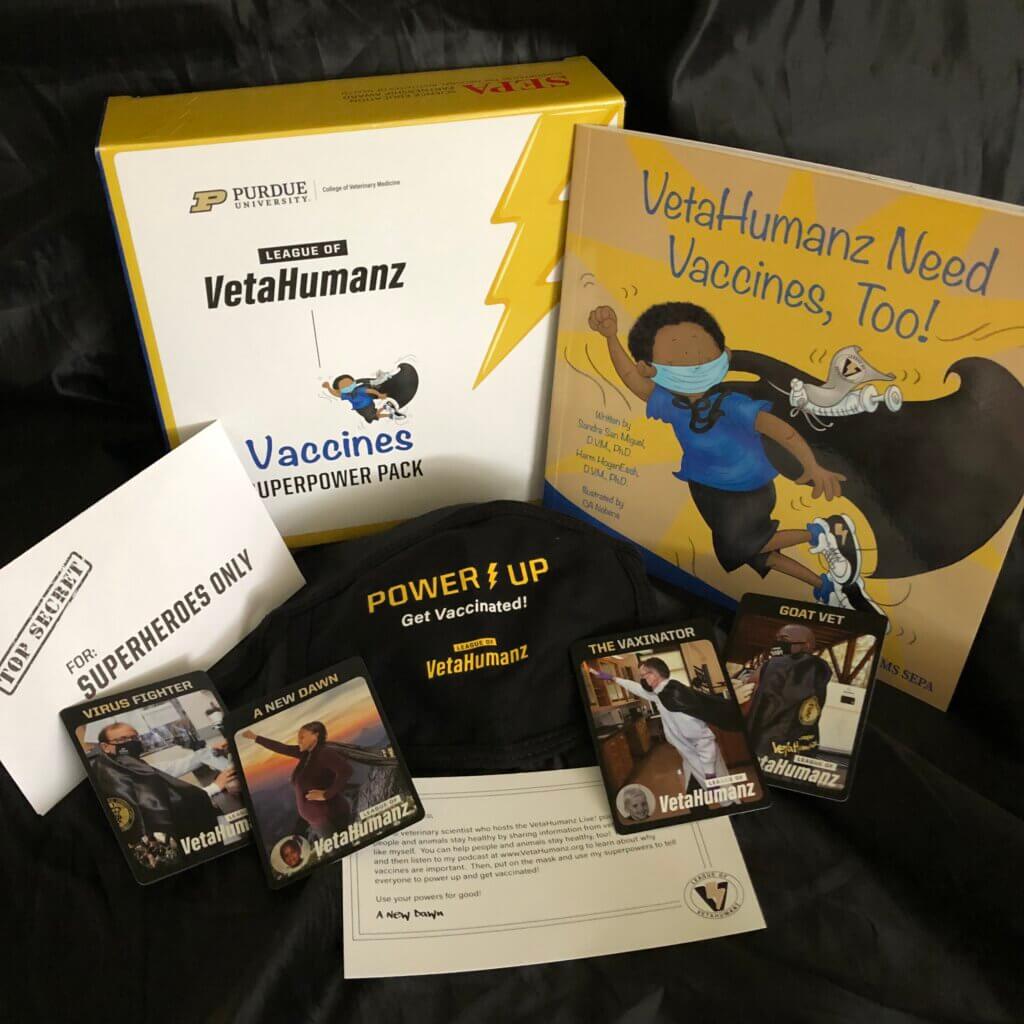
The Purdue University College of Veterinary Medicine’s League of VetaHumanz is highlighted in the latest post on the NIGMS Biomedical Beat Blog of the National Institutes of Health (NIH). The post by Rachel Crowley showcases how The League seeks to diversify the veterinary medical profession.
“I’m Pink Phoenix, leader of the VetaHumanz League of superheroes, and it’s the best job in the world.” That quote begins the blog post, which explains that the League of VetaHumanz is a superhero league for veterinarians, founded and led by Pink Phoenix, the alter ego of Dr. Sandra San Miguel, the college’s associate dean for engagement. The League is supported by the NIH National Institute of General Medical Sciences Science Education Partnership Award (SEPA) program.

The blog goes on to describe how members of The League work with elementary students across the country to give them a sense of belonging to the veterinary profession. “I’m most proud of bringing people together who share the mission and vision with all their heart,” Pink Phoenix is quoted as saying. “Nobody can just be a member of The League. You have to earn the cape.” The League has over 400 certified role models throughout the country who are either veterinarians — VetaHumanz — or veterinary school students—VetaHumanz-in-Training.
Teams of these role models partner with local schools or community centers that support under-resourced students of color. They build relationships with the kids and organizations as they deliver veterinary-based STEM activities, lessons developed through the SEPA program that’s “basically vet school for K-4 students,” according to Pink Phoenix. Through The League’s “See Us, Be Us” model, the students see VetaHumanz who look like them, and they start to realize that becoming a veterinarian is a possibility.
The blog post also quotes VetaHuman-in-Training, Violet Alchemy (alter ego of Akila Bryant, of the DVM Class of 2023), who recalled working with students who were asked to draw a veterinarian. “I noticed a young African American girl drawing a blonde-haired veterinarian,” Violet Alchemy said. When she asked the student about her drawing, the student said she’d never seen a veterinarian who looked like her. “It’s my goal as a future veterinarian to change the narrative of what a veterinarian is supposed to look like so that more African American students can see themselves in this profession and feel empowered to discover their superpowers.”
The blog post also highlights the SuperPower Packs created by The League to reach children no matter where they live. Each pack has a collectible card featuring one of the VetaHumanz with their backstory, superpower, and a picture of them as a kid (so the student can envision themselves as a veterinarian). The pack also includes a letter from the superhero telling the student what they do and how they became a veterinarian. The student can don the included cape to borrow the superhero’s powers and play the game or read the book also included in the pack.

The blog post also explains that the most recent addition to The League’s resources is a podcast in which Pink Phoenix interviews other VetaHumanz to learn about their superpowers and how they became a veterinarian or a veterinary student. Listeners can hear the excitement of what it’s really like to be a vet —which goes much farther than being a family doctor for dogs and cats.
The post concludes by emphasizing that The League not only is having a positive impact on the elementary students who participate, but also on its members. VetaHumanz gain experiences and skills that make them better professionals. Chamaleona, alter ego of VetaHuman-in-Training Keishla Marrero Acosta, of the DVM Class of 2024, is quoted as saying that being part of The League has helped improve her communications skills. “We have to put very complicated terms and definitions into the simplest forms in order for kids to understand.” She adds that as a veterinarian interacting regularly with clients from various backgrounds and education levels, “It’s important for us to know how to efficiently pass on information.”
The blog post ends by pointing out that, for those interested in becoming a veterinarian, Pink Phoenix recommends getting out there and trying new things, “Being a veterinarian is about being open to learning — using your personal experiences and applying them in your own unique way.”
The League of VetaHumanz program is supported by NIGMS SEPA grants R25GM137169 and R25GM137169-02S1.
Click here to read the complete Biomedical Beat Blog post.
